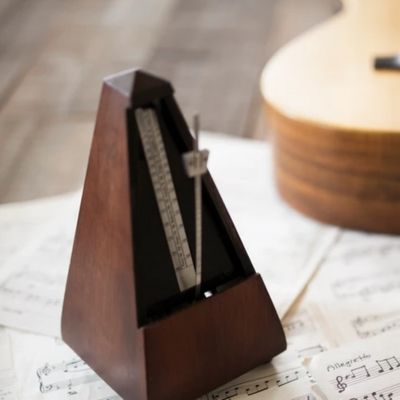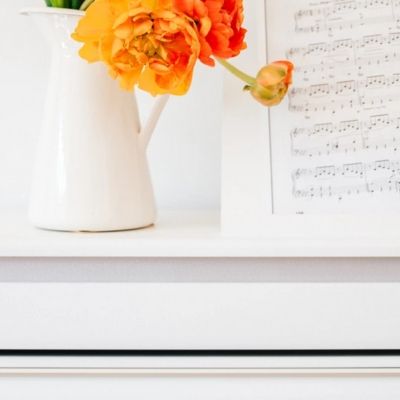5 Simple Ways Parents Can Help Their Child in Piano Lessons

This article was written by Jess Homewood from Not Your Mother’s Piano Studio!
Over the years in my piano teaching career, I have noticed certain effective (and not so effective) parent strategies in helping their child in their piano education. And it is not what you think! Here are 5 SIMPLE ways parents can really help their child in their piano lessons:
1. Focus on Connecting with the Child
Music is all about connection. So when a parent lays down the hard hand and demands that it’s time for that child to practice, the child is automatically put on the defensive and the connection is broken. Even if that child submits and practices as instructed, their practice is affected by the negative interaction by the parent.
I’m certainly not saying a parent should not remind their child to practice, but the delivery of the practice reminder is just as important as the practice itself. If the child associates negative emotions around piano practice, the rate of their retention in lessons is significantly reduced.
Parents can start building this connection by giving their child gentle reminders to practice, sitting at the bench with them, and bonding over music that both the parent and child enjoy.

2. Focus on Connecting with the Teacher
A strong child-teacher relationship actually starts with a strong parent-teacher relationship. Although the teacher spends the majority of their time with the child, the parent is the actual customer–not the student!
Parents are the ones financially investing in lessons, carving time out of their busy schedules to bus them to/from the studio, and taking on some responsibility in regards to at-home practice. So a parent has every right to express their expectations, suggestions, and goals with the teacher! And teachers should want to hear them.
By communicating often with the teacher, it builds a strong foundation for the parent-child-teacher triad as described by Nicola Canton at Colourful Keys. Each part of the triad is a critical part of the piano lesson experience and its success.

3. Set a Realistic Practice Routine Together
Extra-curricular culture has changed drastically since parents and teachers were young. Activities are more expensive, demand higher commitment, and are more competitive than ever before. Children involved in 2+ activities appears to be the new normal.
So if parents come to the table with the same traditional expectations that students practice 30 minutes-1 hour every day of the week, they may need to adjust their expectations if their child is heavily involved in other activities. Otherwise, they will need to cut back on those activities to allow room for their child to have the time and energy to explore their music assignments and creativity.
Regardless of how busy the agenda is, parents can sit down and work with the child on coming up with realistic practice expectations that work with their family schedules.

4. Create a Practice-Friendly Environment
I cannot tell you how many times as a teacher that I hear horror stories about where the child is expected to practice: in the garage where the piano is covered in dust and power tools, cramped in the corner of a family room or kitchen, or that their piano has turned into an extra storage table for miscellaneous items.
This does not encourage practice.
Parents can make a big impact by setting the stage for a welcoming practice environment. By making sure the piano is in an open area, has adequate seating to be able to practice, and that the piano serves as a musical instrument instead of extra storage, practicing will appear inviting and valued by the family.

5. Remember Music is to be Enjoyed
In one of my group lessons, I asked students why they listen to music. Every answer I heard had to do with pleasure and emotional connection. Learning an instrument should also (and is intended to) be enjoyable!
All too often playing turns into a chore, practicing becomes a warzone, and students start dreading their lessons. Parents can remind their children (and themselves) that playing music is fun and exciting! Sometimes this means stepping away from the books and just creating music. Other times it means attending a concert or musical where the family can experience music in a different setting.
Learning a new skill does take work and commitment, but it can still be done in a positive and uplifting experience. By incorporating these 5 strategies, parents can be proactive in their child’s music lessons and set them up for future success.
About the Author

Jess Homewood is a Private Piano Studio Owner and Resource Curator for Not Your Mother’s Piano Studio. Her mantra to keep piano teaching simple has led her to create Volumes 1 & 2 for THE NO PRINTOUT PLAYBOOK, a resource with easy at-home piano games that require little to no prep work or materials. She inspires piano teachers across the world to simplify their lessons and businesses to give them back their time, family life, and enthusiasm for their music teaching career. As a busy mom of two toddlers, she relates to many as she personally balances piano boss and mom boss life–without sacrificing studio growth or fun!
Jess has been a guest on The Dynamic Piano Teaching Podcast and is a featured
guest blogger at Musicnotes. She has professional partnerships with Successful Group Lessons and The Cascade Method to bring the best tried-and-tested resources to her ultimate piano resource library. You can find her resource library at www.notyourmotherspianostudio.com and @notyourmotherspianostudio on Facebook and Instagram.

